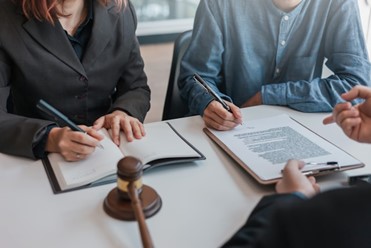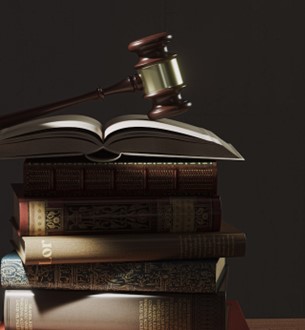Trusts serve as indispensable instruments in estate planning, serving multiple purposes such as asset management, tax mitigation, and ensuring beneficiaries receive their intended provisions as per the grantor’s directives. Yet, the execution of a fiduciary agreement isn’t always seamless, as disputes can emerge, potentially culminating in litigation. Familiarizing yourself with the litigation process and adequately preparing for such scenarios is crucial for effectively navigating these complex situations. Trust attorneys in Los Angeles specialize in guiding individuals through these challenges, providing essential expertise to protect client’s interests and uphold the integrity of their estate plans.
Understanding the Process
Litigation typically begins when a party files a petition in probate court, challenging the validity or administration of a fiduciary agreement. Here’s a step-by-step overview of what to expect:
- Filing a Petition: The process starts with filing a petition in the appropriate probate court. The petitioner outlines their grievances, which can range from allegations of fraud to breaches of fiduciary duty by the trustee.
- Service of Process: The petitioner must serve a copy of the petition to all interested parties, including trustees and beneficiaries. This ensures everyone involved is aware of the litigation.
- Response: The respondents (trustee or other interested parties) have a specific period to respond to the petition. They can admit, deny, or provide a counterclaim to the allegations.
- Discovery: Both sides gather evidence to support their claims. This phase may involve depositions, interrogatories, and requests for documents. Discovery is crucial for building a strong case.
- Mediation/Settlement Discussions: Courts often encourage mediation to resolve disputes without a trial. This involves a neutral third party helping the disputing parties reach a mutually agreeable solution.
- Trial: If mediation fails, the case proceeds to trial. Both sides present their evidence and arguments before a judge, who will make a ruling based on the facts and applicable law.
- Post-Trial Motions and Appeals: After the trial, the losing party can file post-trial motions or appeal the decision if they believe there was a legal error in the trial process.
Common Issues Leading to Disputes
Disputes can arise from various issues. Understanding these common causes can help in identifying and addressing potential problems early on:
- Ambiguities in the Document: Vague or unclear language in the legal document can lead to different interpretations, causing disputes among beneficiaries or between beneficiaries and trustees.
- Breach of Fiduciary Duty: Trustees are obligated to act in the best interests of the beneficiaries. Accusations of mismanagement, self-dealing, or failure to follow the document’s terms can lead to litigation.
- Undue Influence or Fraud: Claims that the grantor was unduly influenced or defrauded into creating or modifying a trust are common. Proving this usually involves showing that the grantor lacked free will or was misled.
- Lack of Capacity: If it is believed that the grantor did not have the mental capacity to create or modify an agreement, this can lead to disputes. This often involves medical evidence and testimony from those who knew the grantor.
- Beneficiary Disputes: Conflicts among beneficiaries over distributions, management of assets, or perceived unfair treatment can result in litigation.
- Amendments and Revocations: Disputes can arise when there are multiple amendments or revocations to a trust, especially if they significantly alter the distribution of assets.
Preparing for Litigation
Preparation is key to navigating this legal landscape successfully. Here are some steps to help you get ready:
- Hire an Experienced Attorney: The legal system can be complex, so it’s crucial to have an attorney specializing in these areas. They can guide you through the process, help gather evidence, and represent your interests effectively.
- Gather Evidence: Collect all relevant documents, including the document, amendments, correspondence, and financial records. Witness statements and expert testimony can also be vital.
- Understand Your Position: Be clear about your goals and the basis of your claim or defense. Understanding the strengths and weaknesses of your case can help in developing a sound legal strategy.
- Consider Mediation: Be open to mediation or settlement discussions. These can save time, reduce costs, and provide a resolution that is acceptable to all parties involved.
- Stay Informed: Keep track of all deadlines and procedural requirements. Missing a deadline or failing to follow proper procedures can negatively impact your case.
- Maintain Communication: Keep open lines of communication with your attorney and any other involved parties. Clear and timely communication can prevent misunderstandings and help in resolving disputes more efficiently.
Conclusion
Court cases can be a daunting and emotional process, but understanding what to expect and how to prepare can make it more manageable. By knowing the common causes of disputes and taking proactive steps to address them, you can better protect your interests and those of your loved ones. Whether through mediation or trial, being well-prepared is the key to navigating proceedings successfully.


